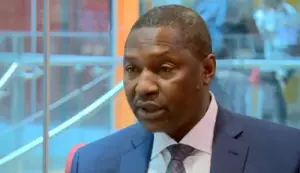The Nigeria Midstream and Downstream Petroleum Regulatory Authority (NMDPRA) has identified the relatively low price of petrol in Nigeria as a major factor driving smuggling activities to neighboring countries.
This revelation came during a press briefing held on Friday by Operation Whirlwind of the Nigeria Customs Service (NCS) in Yola, where additional seizures of petrol packaged for smuggling from Adamawa State were announced.
NMDPRA Chief Executive, Farouk Ahmed, stated that the significant price difference between Nigeria and neighboring countries makes illegal fuel diversion an attractive venture for smugglers, explaining their persistence despite increased enforcement efforts.
Dr. Bashir Sirajo, the Adamawa State Coordinator of NMDPRA, acknowledged that substantial volumes of petrol designated for locations within Adamawa State are frequently diverted by smugglers across the border.
The press briefing follows a previous announcement on Wednesday, May 21, 2025, where the Adamawa/Taraba Area Command of the NCS reported the confiscation of over 36,000 liters of petrol allegedly being transported from Adamawa and Taraba States toward Cameroon.
Hussaini Ejibunu, National Coordinator of Operation Whirlwind, detailed the unit's activities in Adamawa State over the past five weeks, reporting several seizures of petrol and vehicles used for smuggling operations. The combined duty-paid value of the seized items was estimated at N63,046,750.
The seized items include 1,959 jerry cans of 25 liters each, totaling 48,975 liters of petrol, along with five vehicles—three cars and two pickup trucks—that were being used to transport the contraband fuel.
Ejibunu emphasized the operation's commitment to securing Nigeria's borders against smuggling activities, stating, "We are resolved more than ever before to give smugglers a tough fight."
The intensified anti-smuggling operations come as Nigeria continues to grapple with fuel supply challenges despite being Africa's largest oil producer. The significant price disparity between Nigeria and neighboring countries has created a lucrative black market that threatens the country's domestic fuel supply chain.













